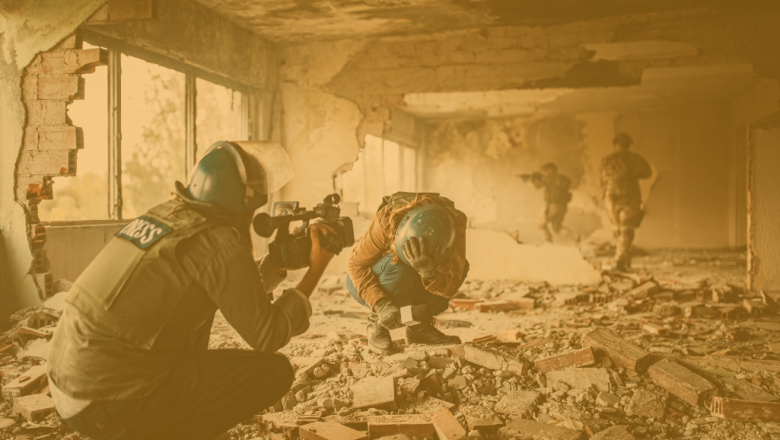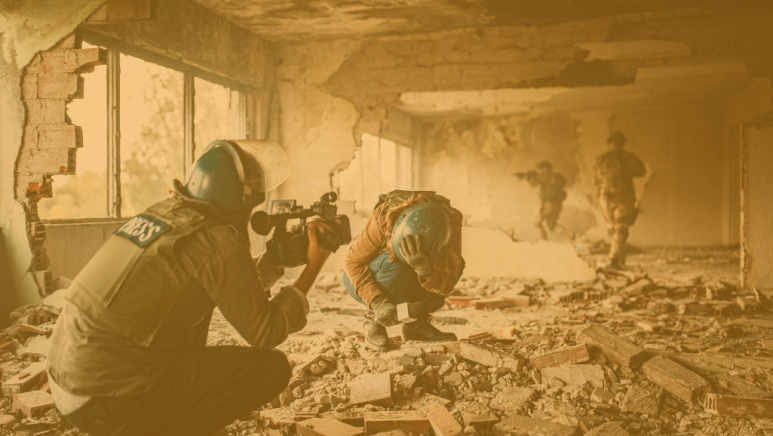By Dina Newman

When Alsu Kurmasheva, a Russian-American journalist, was arrested in Russia earlier in 2023 , the news sent shockwaves through the international journalist community covering Russia.
“She really had no idea she risked being detained,” says Shahida Tulaganova, a London based filmmaker and a former colleague.
Alsu lives in Prague and works for Radio Free Europe-Radio Liberty. She has a Russian and an American passport. She was detained on a visit to her native Tatarstan for failing to “self-register” as a foreign agent – the first such case of its kind.
Tatars are a Turkic people, one of nearly two hundred ethnicities inside Russia, and Tatarstan is located in the Volga region. Alsu Kurmasheva had spent her career working for the RFE’s Tatar service, and never imagined she could be at risk while visiting her parents. Colleagues describe Alsu as passionate about her native land, the Tatar language and culture. On top of the original charge, her husband Pavel Butorin reports the latest charge against her: “spreading false information about the Russian army”, for editing a book against Russia’s invasion of Ukraine.
The Russian rights group Memorial considers Alsu a political prisoner. Lawyers are pessimistic about her release prospects.
“Pavel is very worried, and I can’t even imagine what their two teenage daughters are going through right now”, says Shahida Tulaganova. “Alsu should be released immediately”.
Since the start of its full-scale aggression against Ukraine, Moscow has been trying to intimidate and shut down all anti-war media aimed at ethnic minorities.
South of Tatarstan and further down the Volga River is Kalmykia, with its native population, the Kalmyks, who are a people of Mongolian origin. A year ago, a local activist Altan Ochirov was sentenced to three years in prison for “spreading false information about the army” for his video and text posts on Telegram about the war in Ukraine. The same charges were brought against another Kalmyk activist, who is a wheelchair user.
Last November a Kalmyk journalist Valeri Badmaev was sentenced to a fine and banned from journalism for two years, while his newspaper Modern Kalmykia was closed down for “discrediting the Russian army”. Another independent Kalmyk journalist, Badma Buyrchiev, fled Russia in 2022, after a violent attack by several men and warnings of further attacks from the local authorities.
The Kremlin media is portraying Russia’s ethnic minorities as patriots fully supporting Moscow’s policies and the Russian army. However, some independent ethnic minority activists are concerned that their people are disproportionally targeted by army recruiters. According to an independent demographic report, Russia’s war against Ukraine resulted in disproportionate losses of their male population in the poor, far-flung regions of Eastern Siberia.
Local organisations in Eastern Siberia help young men, of Russian and native origin, to avoid the army and flee Russia. Among such organisations are New Tuva working with Tuvins, a small ethnic group of Mongolian origin; Free Yakutia, which campaigns against the war in Ukraine and for the independence from Russia; and Free Buryatia, an anti-war and anti-racist organisation. Last year, Free Buryatia led a successful media campaign against the racist portrayal of Buryat soldiers who serve in the Russian Army. The small Eastern Siberian organisations are registered as foreign agents and are operating from outside the country, using social networks accessible via VPN.
Independent media in Eastern Siberia are being steadily silenced. Mikhail Afanasyiev, editor of Novy Fokus in Khakassia, was jailed last September, for highlighting an important case of Russian riot policemen who had refused to fight in Ukraine. People of Baikal, a popular independent online magazine, was blocked in Russia last year – but has managed to keep up its reporting about local men emigrating to Mongolia, local anti-war protests, and families coping with losses of the loved ones on the Ukrainian front. The editors of the banned publication have fled Russia, relying on anonymous local stringers to continue their work.

